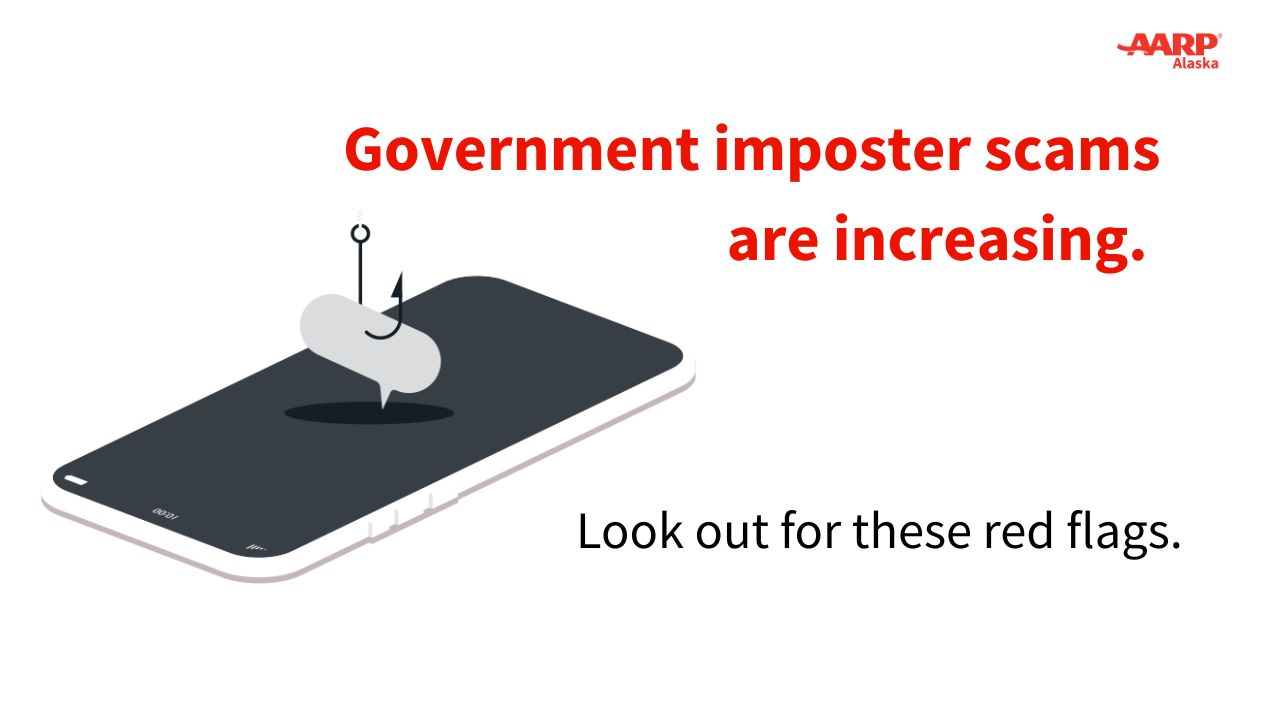AARP Hearing Center

By Teresa Holt, AARP Alaska state director
Government imposter scams, where criminals pose as government employees, are one of the most common scams. Pretending to be from Social Security is one of the top government imposter scams. In 2023, Social Security’s Office of the Inspector General (OIG) received 73,626 reports of Social Security impersonators and related scams, 13.7 percent increase from 2022.
Here is what a Social Security imposter scam looks like: You receive a call, text, or email from someone claiming to be from Social Security. The phone number may be spoofed to look like it is from Social Security, or the email may use Social Security letterhead. Most often, they tell you there is a problem with your Social Security number, that it has been suspended, or that it has been used in a crime, and you are in danger of going to jail or losing the money in your bank account. They might also tell you that you qualify for a benefit increase or need to complete a form to get your Cost-of-Living Adjustment (COLA) increase. These are scams! They are trying to get your personal information or access to your money.

Look out for these red flags: scammers may threaten to suspend your Social Security number, have you arrested, or to seize the money in your bank account. They might also demand immediate payment (by gift card, cryptocurrency, or cash), pressure you to give them your personal information, tell you to keep the situation secret, or promise to increase your benefits. The Social Security Administration won’t do any of these things, so you know this is a scam.
The Social Security Administration communicates about changes by mail. If you owe the agency money — for a benefit overpayment, for example — you’ll receive an official letter outlining your payment options and appeal rights. Social Security mainly calls people who have recently applied for a Social Security benefit, are already receiving payments and require an update to their record, or people have requested a phone call from the agency. If you are not in one of these situations, you normally would not receive a call from the agency.
To protect yourself, do not engage with anyone who unexpectedly contacts you and claims to be from Social Security. If you are concerned there is a problem with your account, contact the agency at 800-772-1213. Be warned that the wait time for calls can be long. To avoid long wait times, set up a “My SSA Account” at www.ssa.gov/myaccount , which you can access at any time to check the status of your account.
To report a Social Security scam, you can call the Social Security fraud hotline at 800-269-0271 or complete a form online. You can also call the AARP Fraud Watch Network helpline at 877-908-3360 to report the scam and talk with a trained fraud specialist who can share information on what to do next. The AARP Fraud Watch Network also offers online group support sessions. For more information on current scams, go to www.aarp.org/FWN.































































